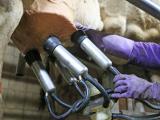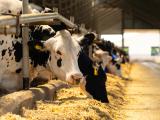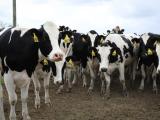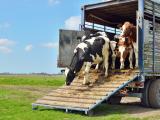Jan 25, 2011
EU Parliament calls for steps to address 'disproportionate' H1N1 response
In a resolution adopted today, a committee of the European Union's (EU's) Parliament recommended that the EU consider the expense of vaccination against the relative risk of a future influenza pandemic, as well as consider cooperative purchasing of vaccines and provide more safeguards against conflicts of interest. The author of the resolution, France's Michele Rivasi, said in a press release, "This report is an important attempt to highlight the concerns that have been raised about the disproportionate response to the swine flu in Europe, as well as the potential influence of pharmaceutical companies in response processes." The measure passed the Parliament's Public Health Committee 58 to 2, with 1 abstention. The resolution recommends that member nations cooperate better to enable mass buying of vaccines, that the names of expert advisers should be published, and that "liability for vaccines" must remain with drug manufacturers. It also calls upon the World Health Organization (WHO) to review its definition of "pandemic" to include disease severity. Last June a health committee of the parliamentary body of the Council of Europe—which is a separate body from the EU—passed a harsh critique of the WHO's response to the 2009 H1N1 pandemic.
Jan 25 EU Parliament press release
Jun 24, 2010, CIDRAP News story on Council of Europe critique
ECDC calls for heightened flu vigilance
The European Centre for Disease Prevention and Control (ECDC) urged taking precautions this year similar to those taken in an average seasonal flu, with some adjustments, given the predominance of the pandemic 2009 H1N1 virus in Europe, including the fact that it has caused 90% of flu deaths. In a risk assessment released today, the ECDC said, "Many of the features and required countermeasures are the same as for the previous seasonal influenzas. However, there are important differences which Europe needs to take into consideration, notably the type of people who are most affected and experiencing severe disease." Those disproportionately affected by severe disease this year, as during the pandemic, are those under age 65, the report says. In addition, some regions, such as the United Kingdom, are seeing more cases of serious illness than during the pandemic. The report recommends increased respiratory and hand hygiene, vaccination, use of antiviral drugs in those with severe flu-like illness, increased vigilance in the healthcare community, and broad sharing of clinical information.
Jan 25 ECDC risk assessment
Hispanic seniors less likely to get seasonal flu vaccine
Hispanic men and women 65 and older are less likely to receive the seasonal flu vaccine than their white contemporaries, according to a new Rand Corp. study in Archives of Internal Medicine. In addition, Hispanic seniors who prefer speaking Spanish and live in newer Hispanic communities where Spanish is predominant are least likely to be vaccinated. Researchers analyzed data from more than 244,000 seniors surveyed in 2008 as part of a federal project and found that 68% of English-speaking and 64% of Spanish-speaking Hispanic seniors had received flu vaccine, compared with 76% of matched white seniors. "These findings suggest new strategies may be needed to target an important problem," said Rand statistician Amelia Haviland, the study's lead author, in a press release.
Jan 24 Arch Intern Med abstract
Jan 24 Rand Corp. press release
USDA posts more stringent avian flu import rule
To prevent the introduction of avian flu into the United States, the US Department of Agriculture (USDA) yesterday issued an interim rule prohibiting the importation of birds and poultry products from regions in which any highly pathogenic avian influenza (HPAI) subtype has been confirmed. The previous rule restricted entry of birds or products only from regions in which the H5N1 strain had been detected. The USDA also added restrictions for live poultry, hatching eggs, and other birds that have been vaccinated for any H5 or H7 subtype of HPAI or that have moved through regions where any HPAI subtype exists. Nonvaccinated birds or hatching eggs must be accompanied by a certificate verifying their status. Comments on the new rule will be received till Mar 25.
Jan 24 USDA news release
Jan 24 Federal Register text of rule


















